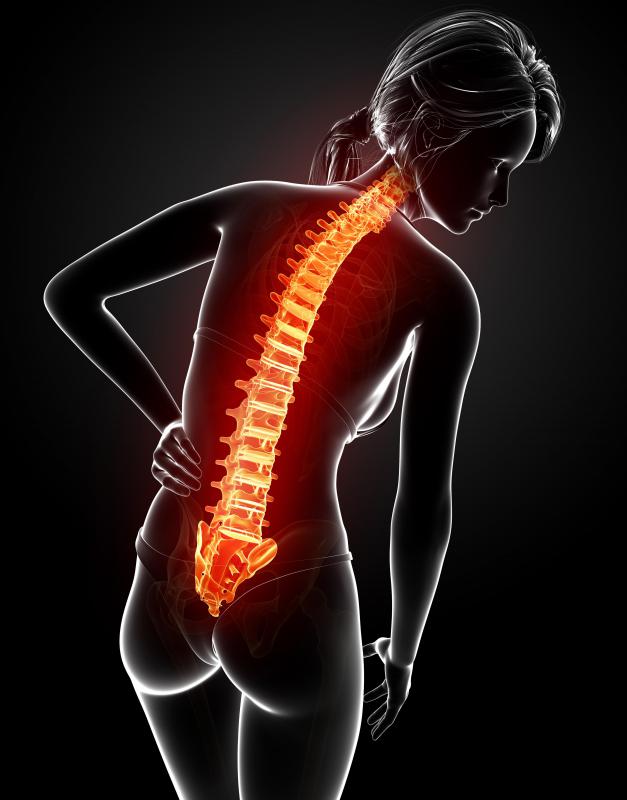At WiseGEEK, we're committed to delivering accurate, trustworthy information. Our expert-authored content is rigorously fact-checked and sourced from credible authorities. Discover how we uphold the highest standards in providing you with reliable knowledge.
What Are the Different Types of Hydrocodone Pills?
In general, there are two main types of hyrdrocodone pills: those that are pure hydrocodone, and those that are blended with another, usually much milder, pain medication. Pure pills tend to be the most potent, but typically also carry the harshest side effects, including the highest risk of addiction and overdose. Most of the hydrocodone compounds sold are combination pills that mix one or two other ingredients, typically an acetaminophen or an aspirin. These pills still carry risks, of course, but in general they’re considered safer and more suitable to treat moderate to severe pain.
Understanding the Narcotic Generally

Hydrocodone is an opiate derivative, normally synthesized from codeine, that carries the chemical formula C18H21NO3. In most countries it is regulated as a narcotic, though it isn’t prescribed much outside of the United States. It relieves pain by binding to opioid receptors throughout the body, especially in the brain and spinal cord.
Weak formulations are often found in liquid form in many cough syrups, though the drug tends to be most effective for pain when compressed into a capsule pill. Some of these are pure hydrocodone, though it’s much more common to find combination pills that are blended with other pain medications.
Benefits of Combination Pills

One of the main reasons that hydrocodone is combined with other pain relieving agents is because research has shown that the addition of medications, like acetaminophen and aspirin, reduce the amount of narcotic needed to combat moderate to severe pain. Acetaminophen, aspirin, and other analgesics that are used in preparations with hydrocodone are called “potentiators.” The addition of potentiators to hydrocodone pills can lessen the need for high amounts of the addictive opioid substance. Hydrocodone itself acts as the potentiator in some upper respiratory medications, like antitussives used for coughs.
Acetaminophen Mixes
One of the most common preparations of hydrocodone pills is hydrocodone with acetaminophen (APAP); this formulation is used to treat moderate to severe pain. The additional analgesic, APAP, lowers fevers and relieves acute and chronic pain.

APAP is not an anti-inflammatory agent, however, so this preparation is usually not given for injuries that involve substantial swelling and edema, like sprains and arthritis. APAP is gentle on the digestive system, in comparison to other analgesics which are significantly disruptive and irritating, and can be used by patients with digestive tract disease or ulcers of the stomach. It is toxic to the liver at moderate doses, however, and its use should be closely monitored by a physician or pharmacist — particularly in patients who regularly consume alcohol or who are also taking other liver-related drugs.
Aspirin-Based Pills

Aspirin, another and usually milder analgesic, can also be combined with hydrocodone to treat moderate to severe pain. Aspirin is most commonly used as a potentiator in patients who have an injury or illness that needs treatment with an anti-inflammatory agent. This combination isn’t appropriate for everyone, though. Aspirin is considered inappropriate in patients who have severe digestive disturbance, like bleeding ulcers, because it can cause irritation, and in some cases, hemorrhagic bleeding because it inhibits clotting factors within the blood. Aspirin is also never used to treat children with viral diseases because it could cause Reye’s syndrome, a rare brain disorder.
Addiction and Other Risks

One of the biggest reasons many medical professionals prefer combination pills is because of how addictive hydrocodone can be. Like most opiates, it can trigger a chemical dependency in the brain. The likelihood of addiction tends to be greater the purer the dose and the longer a person takes the opiate in any form.
Mixes and blends also tend to produce fewer, or at least lessened, side effects. People who aren’t accustomed to taking medication often experience nausea and stomach upset the first few days of hydrocodone use. Depending on the reason for its use, this can actually make a person feel worse rather than better. To determine which formulation is appropriate for a specific patient, a doctor will look at the patient’s symptoms, co-existing conditions, and overall health status.
AS FEATURED ON:
AS FEATURED ON:




















Discuss this Article
Post your comments